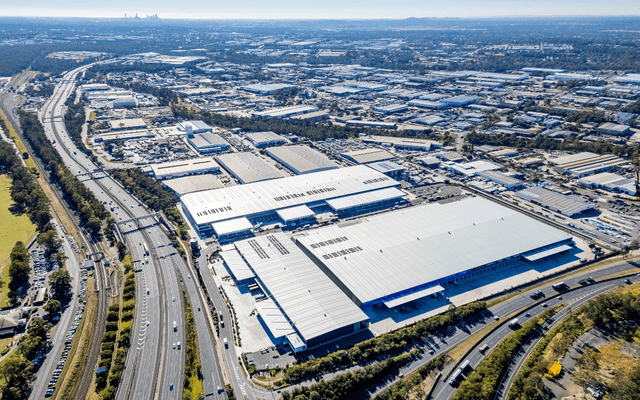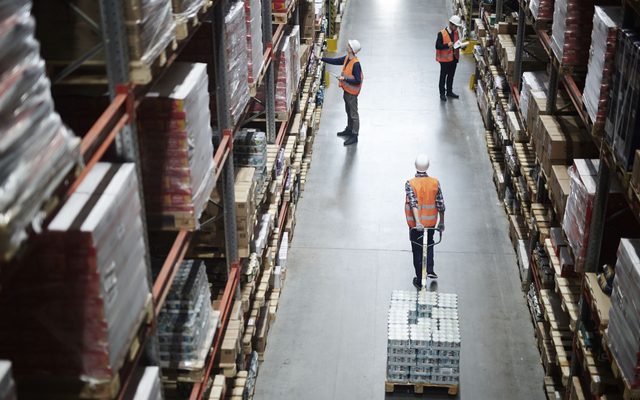This article is from the Australian Property Journal archive
GLOBAL investment into the industrial real estate sector has overtaken retail for the first time, as the e-commerce boom underpinned a sixfold increase in transaction volumes over the past 10 years.
New Savills research shows into the industrial and logistics sector accounted for a record 20% of all global investment volumes into real estate during the first half of 2020.
Some $196 billion was invested in the sector in 2019, a sixfold increase since 2009, on its way to taking third place of the most invested asset classes after offices and residential, and yields are now just 10 basis points higher than those the office sector.
“The current global ecommerce boom, accelerated by consumers shifting their purchasing online throughout the pandemic, has been a major catalyst for this sector’s growth,” director of Savills world research, Paul Tostevin said.
The Centre of Retail Research predicts online sales will grow by 31% in western Europe in 2020, pushing the average e-commerce penetration rate from 12% to 16%. In the US, the same figure is expected to hit an all-time high 14.5%, according to eMarketer.
However, both markets remain a long way behind China’s e-commerce penetration levels, which stand at 27%.
Tostevin said e-commerce isn’t necessarily the sole factor boosting demand.
“Recent supply chain disruption, coupled with escalating trade wars is leading to supply chain diversification, boosting demand for industrial and logistics space in strategic locations closer to the major consumer markets.”
Yields crunched
Intensified competition for assets forced prices upwards and yields have compressed. Between 2007 and 2017, global industrial yields averaged 7.5%, 70 bps above average office yields, but in the second quarter of 2020 industrial yields they have been crunched to 6.1%.
“As the sector has matured, there has been a shift in investor composition towards institutional capital and portfolio deals have accounted for a larger slice of the market, attracting price premiums,” Kevin Mofid, director of Savills industrial and logistic research said.
“Former developer traders now see the income opportunity and have become developer holders. The major funds and REITS are attracted to the sector’s long term income streams and there’s a growing scarcity value as stock is being held for longer.”
Charter Hall and its prolific funds management platform has been at the lead of industrial spending in Australia so far this year, acquiring four ALDI logistics properties in partnership with Allianz for $648 million, as well as the Winc national distribution centre in Erskine Park for $115 million. A Charter Hall partnership paid for a $214 million portfolio sale and leaseback agreement with Owens-Illinois Australia, while the $6 billion Charter Hall Prime Industrial Fund and a global institutional partnership managed by the group bought a 30.6 hectare automotive logistics park in Sydney’s Minto for $207 million.
Listed companies are looking to reweight their portfolio towards the sector and away from struggling retail, including heavy hitters such as Stockland.
Industrial AREITs have outperformed this year, according to Atchison Consultants.
South Korea’s pension fund is also looking to invest in Australia’s market, and Singapore’s ESR Cayman launched a $1 billion fund targeting prime logistics in Sydney, Melbourne and Brisbane.
Asia growth adding to investor demand
China’s market remains “extremely resilient”, according to Savills, where logistics volumes in the first half of 2020 stood at 80% of 2019’s total despite the country being the epicentre of the coronavirus outbreak.
Investors also have an eye to India, which has emerged as an alternative manufacturing destination to China, due to its low labour costs, trade openness and a business-friendly government.
“The growth of the logistics sector is a truly global story and it is now proving to be one of the most resilient asset classes through this global economic downturn,” said Marcus de Minckwitz, director, Savills regional investment advisory, EMEA.
“There is unprecedented levels of investor demand and in the west this has been driven by Amazon and major national players. We may now see a whole new wave of demand from the big Asian players heading west.
“The ongoing challenge for investors will be finding opportunities. With many rebalancing their asset allocation strategies toward the industrial sector, competition for completed assets will remain fierce.”




